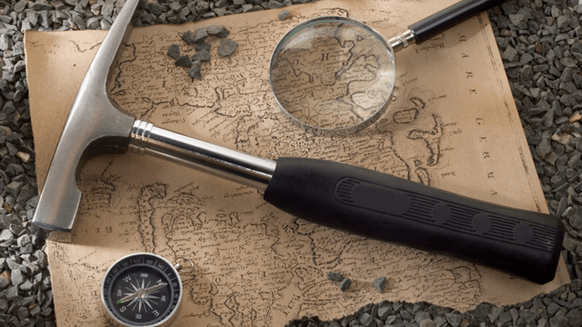The Shale Revolution and the Great Crew Change

This commentary presents the opinions of the author.
It does not necessarily reflect the views of Rigzone.
We have heard about the "Great Crew Change" ad nauseum for the past four or five years as the Baby Boomers (count me in that camp) reach retirement age and depart for greener pastures—sitting on a rocker, traveling the world or playing with the grandkids. And they will leave a void when they're gone, it just won't show up for a few years. The Shale Revolution will mask its impact for now, maybe for another generation.
Let's see what skills are required of a geoscientist (and I'm sorry, I'm prejudiced about the importance of geoscientists and where they fit into this work flow) in a "shale" play. They are asked to identify the "sweet spots" of a play area using whatever tools are most appropriate—3D seismic attribute analysis, surface geochem, petrophysical analysis (to determine OOIP), lineament analysis and so forth—then put a horizontal well bore in the most favorable horizon the target formation pointed in the best direction that spacing requirements allow. Then they consult with the completion team to ensure that the wellbore is optimally stimulated to produce at the maximum commercial return. Then they go do it again, and again, and again, until they have drilled up and re-fraced the 3,200 locations that they have identified in that county.

This is all good, these are technologies and techniques that can be learned by most college graduates with a basic understanding of earth science and economics. The company will make money, a good return on their investment dollar, and they will survive. But they may not survive when they run out of shale wells to drill in that county. And it could be (successfully) argued that the Shale Revolution has saved the domestic oil industry from the effects of the last Great Crew Change by allowing them to survive without Exploration.
What, you thought this was a new thing? It's not, and as George Santayana once wrote, "Those who cannot remember the past are condemned to repeat it." During the late 1970s and early 1980s there was an older generation that found a lot of oil (Elmworth (1976), Prudhoe Bay (1968), Ekofisk (1969) and East Anschutz Ranch (1978), to name but a few) and went into retirement with the crash in prices (I remember when we sold a tank of sweet crude in the Gulf Coast for $20/barrel and were happy that the price was that good). I've never seen any figures, but I rather suspect that we lost proportionately as many as we have over the past few years.
The upstream industry back then was divided into two camps, development and exploration. Development was detailed and busy. You were charged with drilling wells to fully exploit an accumulation. Not no risk, but low risk. If you needed seismic, you got seismic. That's where the bulk of any company's budget that wanted to survive went. They were the bread and butter of the day.
Exploration was the opposite. You got relatively little budget because it was a sure bet you were going to drill a bunch of dry holes and "waste" it. Successes were few and far between and the learning curve was steep and easy to fall off of. Risk was the elephant in the room that nobody wanted to talk about but everybody had to figure out how to manage. New technology helped—it's not likely the Wyoming overthrust would have been found without CDP seismic or the Sacramento Valley Gas Province exploited without recognizing "bright spots" for what they were. Of course, there were over a hundred dry holes drilled in each of those plays (and countless others) before they broke open.
And then tight gas came along (helped by some favorable taxation), followed by shale gas, coal bed methane and now tight oil. These are all technology-driven, continuous-type reservoirs, most of which had been previously identified by vertical wells that encountered shows while drilling. This was great!! Little geologic risk, if you managed things right. They satisfied every manager's dream of repeatable mini-projects that were similar enough that you could book 'em before you drilled 'em. It became an issue of managing company resources (capital and people) to maximize the return on investment. Good managers became the rock stars, and the investment community their biggest fans.
And in the process the explorationists that were around slowly and inexorably disappeared—without leaving a new crop to carry on. And, just for the record, geologists don't always make the best explorationists. Engineers, geophysicists, even managers make great explorationists because they have "that something." Great explorationists share a few common qualities and traits: they're not afraid of hard work, they pay attention to (but don't get lost in) the details, they love what they do, and they persist until they drive everyone around them nuts. And, perhaps most importantly, they have learned what maps matter.
Exploration is a term often misused in our industry so perhaps we should define what we mean by Exploration (big E intended) by illustrating what it is not. Exploration is not drilling a well two miles from a field, expecting to find the same thing. It is not drilling a seismically defined structure in the Gulf of Mexico. It is not drilling a deep Red River well in Mackenzie County, North Dakota. These are examples of exploiting a known geologic trend to find more of what's already been found. That's not Exploration (upper case E), but they all might be exploration (lower case e). These kinds of projects work very well with commercially available risk analysis packages to let you assess whether that anomaly is economically viable, given your assessment of the risk involved and its potential size. You can, and should, have projects of this type in your portfolio. They add value.
The Exploration we're talking about involves looking at a basin or a non-productive interval in a basin to determine if all the things that need to be there for it to contain oil and gas accumulations (source rocks, reservoir, maturation, timing, migration, closure, etc.) are present. And if they are there, where do you drill? It doesn't matter if the target is conventional or unconventional, porous or tight, but it is different and it is new. It doesn't matter if the basin is covered with a mile of basalt, in 10,000 feet of water, or lies less than 2,000 feet deep under the [insert state here] prairie. It matters that it has potential that you are convinced will save your company and the county from ruin. It's big enough to "move the needle," if it works.
I worked with an old geologist early in my career. We sat around a conference table (this one happened to be in a bar) one day in 1979 and talked geology. He mentioned a dozen plays he thought were worth studying in detail to see if they were worth pursuing. Some of them you've probably heard of by now (Bakken, Frontier Tight Gas, Coal Bed Methane), others are still waiting for someone with enough persistence to get them drilled. I learned more regional petroleum geology in that four-hour discussion than in any industry school I've attended.
There are not many Explorationists left around, this industry has a way of pushing them out because they don't add much to the quarterly bottom line. And because they can be a little scary to management. Exploration takes time and persistence and thoughtful contemplation. It should scare your management, if it doesn't you're either not doing it right or you work for a manager that has raised teenagers. So what makes a good Exploratonist? The answer will surprise you, but that's a topic for next time.
Oklahoma City-based petroleum geologist Paul Baclawski is a founding partner of Select Exploration Group. He has more than 39 years’ experience with both small and large independent producing companies, focused on productive basins in the western United States and in New Zealand, Argentina and the North Sea.
WHAT DO YOU THINK?
Generated by readers, the comments included herein do not reflect the views and opinions of Rigzone. All comments are subject to editorial review. Off-topic, inappropriate or insulting comments will be removed.
- How Likely Is an All-Out War in the Middle East Involving the USA?
- Rooftop Solar Now 4th Largest Source of Electricity in Australia
- US Confirms Reimposition of Oil Sanctions against Venezuela
- EU, Industry Players Ink Charter to Meet Solar Energy Targets
- Analyst Says USA Influence on Middle East Seems to be Fading
- Russian Ships to Remain Banned from US Ports
- Brazil Court Reinstates Petrobras Chair to Divided Board
- EIB Lends $425.7 Million for Thuringia's Grid Upgrades
- Var Energi Confirms Oil Discovery in Ringhorne
- Seatrium, Shell Strengthen Floating Production Systems Collaboration
- An Already Bad Situation in the Red Sea Just Got Worse
- What's Next for Oil? Analysts Weigh In After Iran's Attack
- USA Regional Banks Dramatically Step Up Loans to Oil and Gas
- EIA Raises WTI Oil Price Forecasts
- How Likely Is an All-Out War in the Middle East Involving the USA?
- Venezuela Authorities Arrest Two Senior Energy Officials
- Namibia Expects FID on Potential Major Oil Discovery by Yearend
- Oil Markets Were Already Positioned for Iran Attack
- Is The Iran Nuclear Deal Revival Project Dead?
- Petrobras Chairman Suspended
- Oil and Gas Executives Predict WTI Oil Price
- An Already Bad Situation in the Red Sea Just Got Worse
- New China Climate Chief Says Fossil Fuels Must Keep a Role
- Oil and Gas Execs Reveal Where They See Henry Hub Price Heading
- Equinor Makes Discovery in North Sea
- Macquarie Strategists Warn of Large Oil Price Correction
- DOI Announces Proposal for Second GOM Offshore Wind Auction
- Standard Chartered Reiterates $94 Brent Call
- Chevron, Hess Confident Embattled Merger Will Close Mid-2024
- Analysts Flag 'Remarkable Feature' of 2024 Oil Price Rally


